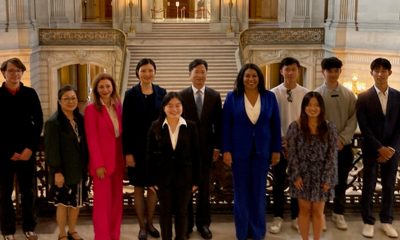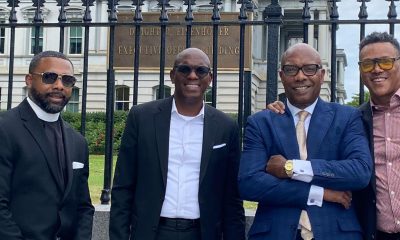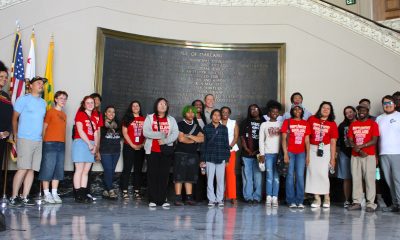Activism
HED: My Sister’s Keeper Helps to Build Up Bay Area Black Women
The African American Cultural Center on Fulton Street was the site of the fourth annual My Sisters Keepers, By All Means Necessary conference this past weekend, which brought together local and national figures to talk to young women about being assets to the local and national Black communities.
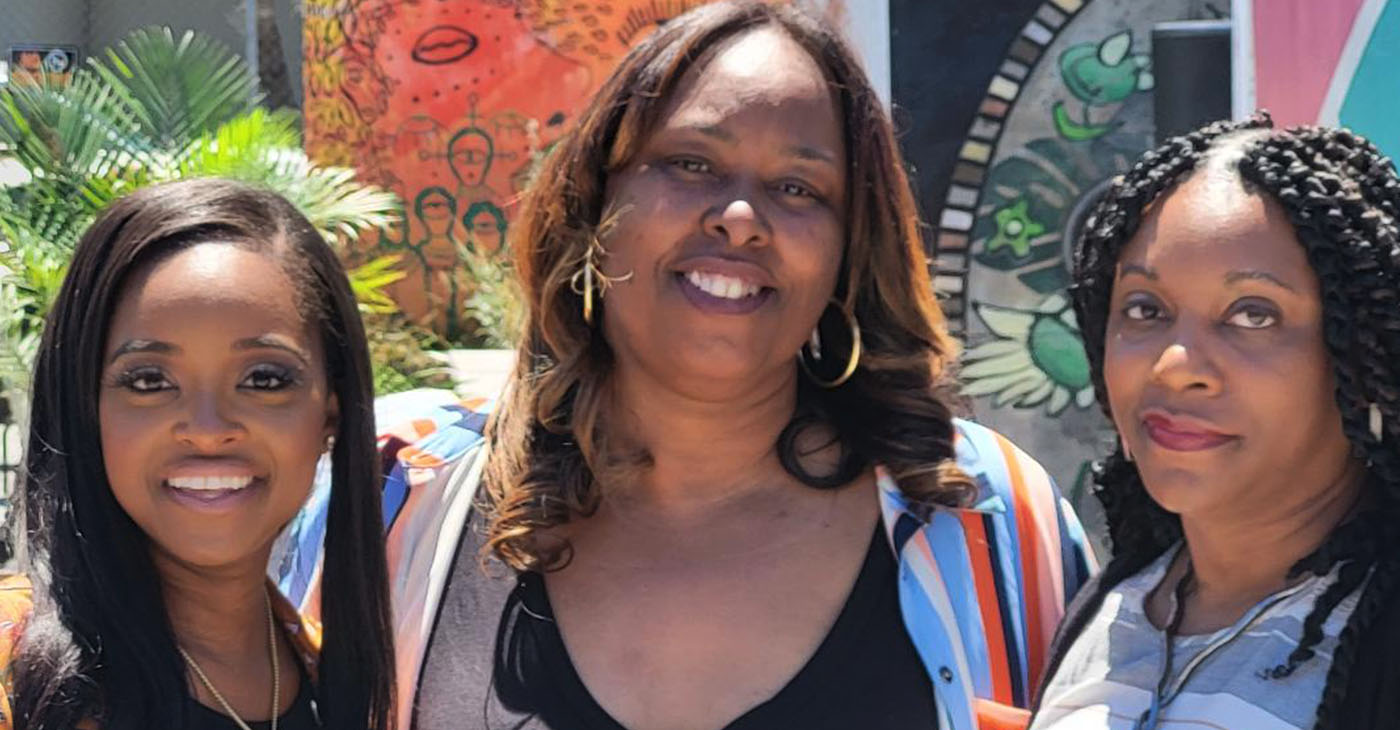
By Lee Hubbard
Tina Brown was born and raised in San Francisco’s Western Addition. She had a troubled childhood, which led to her being a runaway, incarceration in Juvenile Hall and becoming a teenage mother.
Bad choices in life led to bad relationships and an unstable life situation. But things would change—with a brush with the law as an adult—that would change her life around.
Brown got a mentor, got a job and it helped her turn her life around. She became a productive citizen and an activist for young Black women.
“I began interacting with young girls and we started doing weekly meetings with young ladies aged 12 to 17,” said Brown. “We were able to talk about what’s going on in the community and their lives.”
This was the start of My Sister’s Keeper, a non-profit organization that Brown started, based in San Francisco. The organization deals with improving the lives of young Black girls through mentoring, training and exposure.
“It started out as a way to speak out to heal the trauma inside of me,” continued Brown. “I would go to these Black women conferences in Atlanta, Los Angeles and Miami and I noticed that nothing was really happening in the Bay or San Francisco.”
The African American Cultural Center on Fulton Street was the site of the fourth annual My Sisters Keepers, By All Means Necessary conference this past weekend, which brought together local and national figures to talk to young women about being assets to the local and national Black communities.
More than one hundred people were at the all-day conference. People on hand included national grassroots activists such as Tamika Mallory, Angela Davis and Dr. Syleecia Thompson, an educator and host of a Fox Soul television show.
Mallory calls herself a street politician and she came to fame during the George Floyd protest, where she gave an impassioned plea against racism and the fight for Black liberation from white supremacy in front of millions of television viewers.
“I came to this conference to share my work on how we are working politically and how we can find ways to be connected and empowered,” said Mallory.
She hosts a national podcast called Street Politicians on the iHeart network, with her co-host Mysonne.
“Black women are left out of positions of power, often because we are women,” continued Mallory. “But we need to speak up.”
“Every generation has its way of expressing itself,” said Mallory. “We as leaders need to create inclusive spaces,” so people will communicate the issues. There is still work that needs to be done, and it will take a united front to make things happen, she says.
“We need to help to liberate our Black men and help them to lead, so we can fight together,” continued Mallory.
A men’s panel also came to address the ladies. This included San Francisco hip-hop producer and activist Herm Lewis, Bishop Keith Clark from World Assembly Church in Oakland and Hakeem Brown, a city council member from Vallejo, California.
Bridgette Leblanc, a local businesswoman and vice chair of the San Francisco Black Chamber of Commerce was also present. She said women need to look more into business and then join organizations like the chamber which help to incubate and develop them.
She said that as an organization, the chamber helps to bring Black business to San Francisco and to make sure Black businesses get a share of the money coming into San Francisco.
“It’s not easy being a leader, but [we] have to move into [these positions] to make things happen,” said Leblanc.
Other women who spoke at the conference included Gina Fromer, head of the San Francisco Children’s Council, Dr. Ramona Bishop, the founder of Elite Public Schools in Vallejo and Cloey Hewlett, the California Commissioner of Department of Financial Protection and Innovation.
“People got a lot of value out of the conference,” said Brown. “It brought mentorship, sisterhood and a lot of activity that people can build upon to initiate action and change.”
Activism
Oakland Post: Week of July 24 – 30, 2024
The printed Weekly Edition of the Oakland Post: Week of July 24 – 30, 2024

To enlarge your view of this issue, use the slider, magnifying glass icon or full page icon in the lower right corner of the browser window. ![]()
Activism
Oakland Post: Week of July 17 -23, 2024
The printed Weekly Edition of the Oakland Post: Week of July 17 -23, 2024

To enlarge your view of this issue, use the slider, magnifying glass icon or full page icon in the lower right corner of the browser window. ![]()
Activism
Community Celebrates Historic Oakland Billboard Agreements
We, the Oakland Billboard Economic Development Coalition, which includes Oakland’s six leading community health clinics, all ethnic chambers of commerce, and top community-based economic development organizations – celebrate the historic billboard agreements approved last year by the Oakland City Council. We have fought for this opportunity against the billboard monopoly, against Clear Channel, for five years. The agreements approved by Council set the bar for community benefits – nearly $70 Million over their lifetime, more than 23 times the total paid by all previous Clear Channel relocation agreements in Oakland combined.
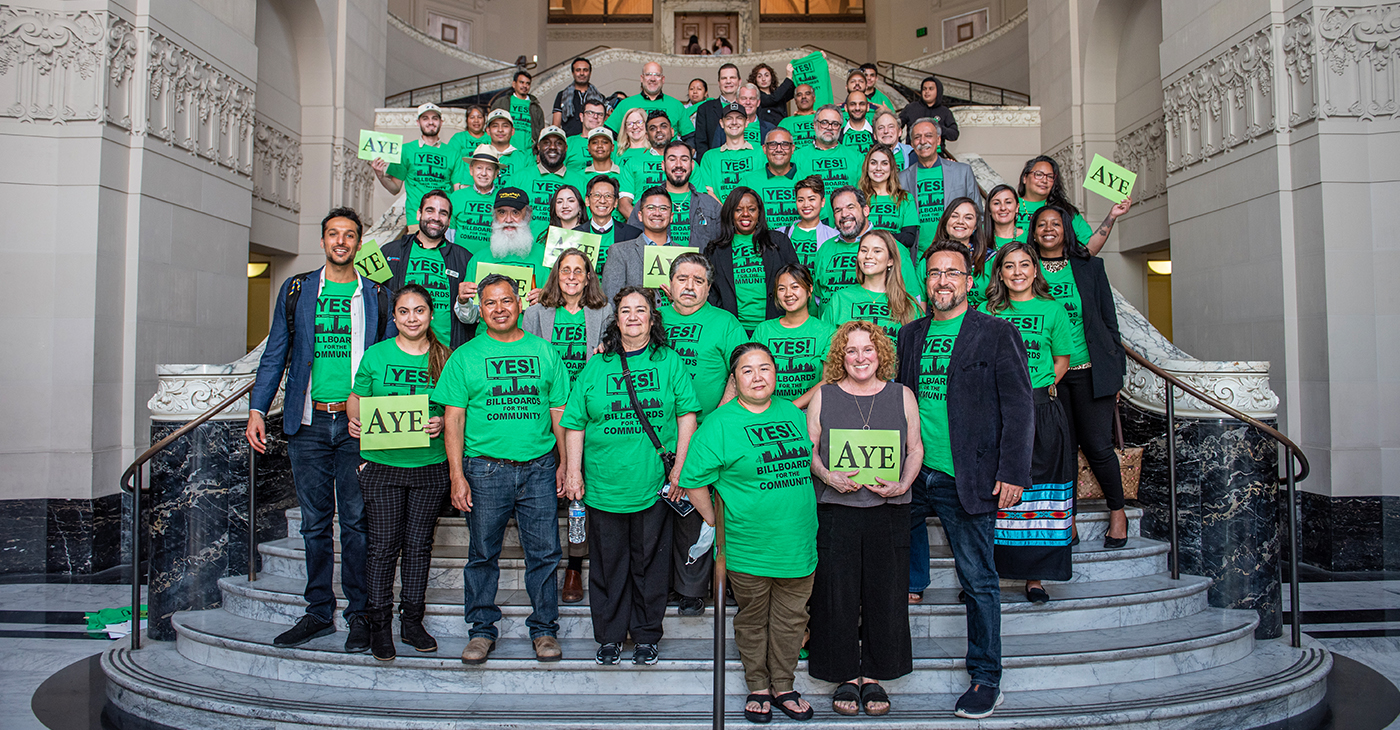
Grand Jury Report Incorrect – Council & Community Benefit
We, the Oakland Billboard Economic Development Coalition, which includes Oakland’s six leading community health clinics, all ethnic chambers of commerce, and top community-based economic development organizations – celebrate the historic billboard agreements approved last year by the Oakland City Council. We have fought for this opportunity against the billboard monopoly, against Clear Channel, for five years. The agreements approved by Council set the bar for community benefits – nearly $70 Million over their lifetime, more than 23 times the total paid by all previous Clear Channel relocation agreements in Oakland combined.
Unfortunately, a recent flawed Grand Jury report got it wrong, so we feel compelled to correct the record:
- Regarding the claim that the decision was made hastily, the report itself belies that claim. The process was five years in the making, with two and a half years from the first City Council hearing to the final vote. Along the way, as the report describes, there were multiple Planning Commission hearings, public stakeholder outreach meetings, a Council Committee meeting, and then a vote by the full Council. Not only was this not hasty, it had far more scrutiny than any of the previous relocation agreements approved by the City with Clear Channel, all of which provide 1/23 of the benefits of the Becker/OFI agreements approved by the Council.
- More importantly, the agreements will actually bring millions to the City and community, nearly $70M to be exact, 23 times the previous Clear Channel relocation agreements combined. They certainly will not cost the city money, especially since nothing would have been on the table at all if our Coalition had not been fighting for it. Right before the decisive City Council Committee hearing, in the final weeks before the full Council vote, there was a hastily submitted last-minute “proposal” by Clear Channel that was debunked as based on non-legal and non-economically viable sites, and relying entirely on the endorsement of a consultant that boasts Clear Channel as their biggest client and whose decisions map to Clear Channel’s monopolistic interests all over the country. Some City staff believed these unrealistic numbers based on false premises, and, since they only interviewed City staff, the Grand Jury report reiterated this misinformation, but it was just part of Clear Channel’s tried and true monopolistic practices of seeking to derail agreements that actually set the new standard for billboard community benefits. Furthermore, our proposals are not mutually exclusive – if Clear Channel’s proposal was real, why had they not brought it forward previously? Why have they not brought it forward since? Because it was not a real proposal – it was nothing but smoke and mirrors, as the Clear Channel’s former Vice President stated publicly at Council.
Speaking on behalf of the community health clinics that are the primary beneficiaries of the billboard funding, La Clinica de la Raza CEO Jane Garcia, states: “In this case, the City Council did the right thing – listening to the community that fought for five years to create this opportunity that is offering the City and community more than twenty times what previous billboard relocation agreements have offered.”
Oakland Billboard Economic Development Coalition
| Native American Health Center | La Clínica de la Raza | West Oakland Health Center |
| Asian Health Services | Oakland LGBTQ Center | Roots Community Health Center |
| The Unity Council | Black Cultural Zone | Visit Oakland |
| Oakland African American Chamber of Commerce | Oakland Chinatown Chamber of Commerce | Oakland Vietnamese Chamber of Commerce |
| Oakland Latino Chamber of Commerce | Building Trades of Alameda County | (partial list) |
-

 Arts and Culture3 weeks ago
Arts and Culture3 weeks agoRooted in Tradition: The Intricate History of Black Hair Braiding
-

 Bay Area4 weeks ago
Bay Area4 weeks ago“I Will Not Be Bullied,” Says Oakland Mayor Sheng Thao
-

 Bay Area2 weeks ago
Bay Area2 weeks agoPG&E Increases Rates While Bay Area Households Are Struggling to Stay Afloat
-

 Business3 weeks ago
Business3 weeks agoGov Newsom: Raising Fast Food Minimum Wage to $20 Pays Off as Jobs Multiply in Industry
-

 Activism4 weeks ago
Activism4 weeks agoOpponents of Mayor Sheng Thao Are Calling on Her to Resign Following FBI Raid
-

 Community1 week ago
Community1 week agoHundreds Come to Jehovah’s Witnesses’ Assembly Hall for Three-Day Program of ‘Good News’ in Fremont
-

 Bay Area2 weeks ago
Bay Area2 weeks agoJuneteenth Mass Shooting Suspect Charge with Multiple Counts of Felony Assault by Alameda County DA Pamela Price
-

 Activism4 weeks ago
Activism4 weeks agoOakland Coliseum Sale to AASEG: A Model for Community Development and Inclusion





